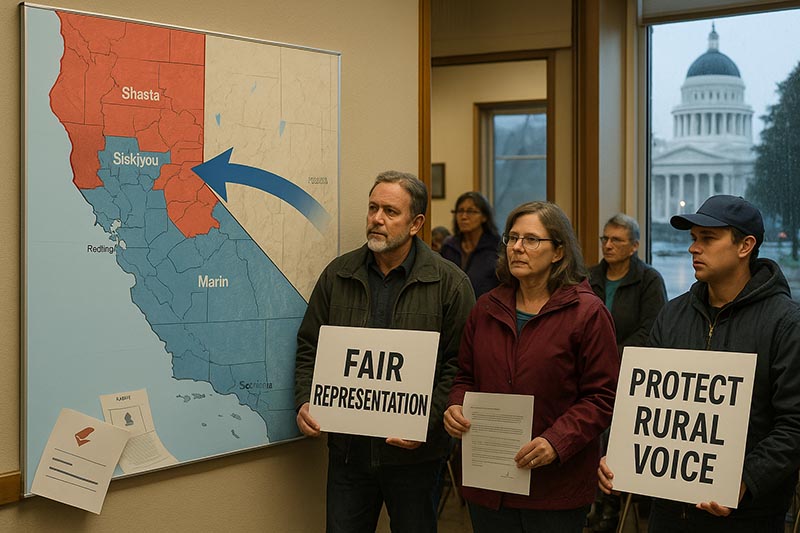Payam Javan: The Republican Party base in Northern California is raising the alarm over a looming state election focused on a new redistricting proposal, warning that the measure is a brazen attempt by the Democrat majority to consolidate power and effectively disenfranchise conservative voters. This concern centers on Proposition 50, which, if passed, would merge staunchly conservative rural counties like Shasta, Siskiyou, and Modoc with the state’s wealthiest and most liberal coastal communities, fundamentally altering their congressional representation. The move is seen as a deliberate strategy to dilute the influence of the few remaining Republican strongholds in the state.
The proposition’s proponents argue the new maps are necessary to safeguard democracy and achieve equitable representation. However, California Republicans are categorically rejecting this framing, asserting that the new boundaries are a clear power grab designed to minimize GOP voices in the U.S. House of Representatives. Currently, Republicans hold only nine of the state’s 52 congressional seats, and they fear the passage of Proposition 50 will lead to a further erosion of their political footing, effectively silencing the rural conservative perspective in national debates.
The battle has become a high-stakes cultural flashpoint within California politics. Voters in these rural areas, who heavily supported President Donald Trump in recent elections, see themselves as being forced into districts dominated by the political ideologies of the San Francisco Bay Area and Marin County. This forced political amalgamation is viewed as an act of political aggression that violates the spirit of representative government, where regional communities should be able to elect candidates who genuinely reflect their local values.
Despite the difficult path ahead, Republican activists and younger conservatives in the region are vowing to maintain political resistance. Figures on the ground, such as those in Redding, are mobilizing, stressing that the fight for fair representation is far from over, even if the proposition passes. This sustained effort reflects a broader conservative movement in California determined to push back against the state’s increasing progressive dominance and prevent the complete marginalization of their views.
This intense redistricting debate serves as a crucial microcosm of the deeper political divides plaguing American states, particularly in areas where population centers dictate statewide policy to the detriment of rural interests. For California Republicans, this is not just an electoral challenge; it is a fundamental defense of their political identity and a stand against what they perceive as the tyrannical exercise of unchecked majority rule.









